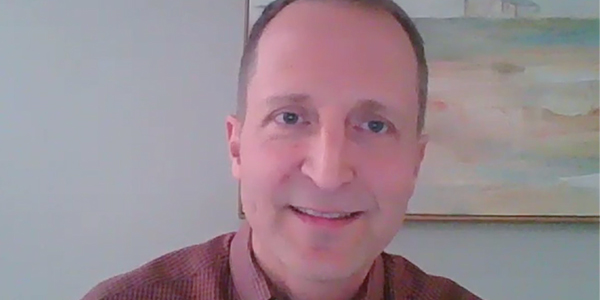The Midwest requires a more comprehensive approach to transmission planning to meet the region’s varied goals, industry experts said last week during a Mid-Grid virtual meetup.
The Midwestern Governors Association (MGA) formed the Mid-Grid collaboration to examine the Midwest’s long-term transmission system design and planning. The group is currently focused on a vision for 2035.
MGA Executive Director Jesse Heier joked that the 200-strong turnout for the virtual meeting was either a sign that the 2035 vision is important work or people “had finally run out of things to watch on Netflix.”
The association was supposed to hold the panel session April 2 in Des Moines but was prevented by the ongoing COVID-19 pandemic.
Heier said that while different Midwestern states have different goals, he believes they can find common ground in transmission planning. States involved in Mid-Grid include Arkansas, Illinois, Indiana, Iowa, Michigan, Minnesota, Missouri, North Dakota and Wisconsin.
ITC Holdings Senior Vice President Krista Tanner said the pandemic demonstrates how crucial the grid is. “Everything we do from caring for the ill, keeping people fed and letting the videos run to keep the kids occupied underscores the importance of the grid.”
But long-term RTO transmission planning, especially in the upper Midwest, has “slowed to a crawl,” she said, and that FERC’s Order 1000 has resulted in sluggish electricity infrastructure growth in a “natural monopoly.”
“I believe the answer is once again for states to step forward and take responsibility,” Tanner said.
“The current system is at capacity or perhaps beyond,” American Wind Energy Association Central Region Director Daniel Hall said.
MISO must develop a long-term transmission study and stop relying on interconnection customers’ network upgrades to expand transmission capacity, he said. The RTO’s reliance on network upgrades is a “haphazard” approach that results in an “inefficient system,” according to Hall. In his previous role at the Missouri Public Service Commission, Hall similarly pushed MISO to create another long-term plan.
Holly Lahd, Target’s lead energy program manager, said the retailer has similarly encountered prohibitively expensive network upgrade costs for grid access.
“We’re setting clean energy goals, and yet, how are we going to get there?” she asked. “We’re making plans, but we don’t have the energy infrastructure to meet them.”
Target, headquartered in Minneapolis, has committed to completely sourcing its electricity from renewable sources by 2030.
Hall said the corporate community should make appeals directly to regulators and elected officials for more transmission to support their clean energy goals. He also said that if network upgrades can show wider benefits, costs should be shared among beneficiaries and not solely be the responsibility of the generation developer.
“We think, in fact, it might be required by the [MISO] Tariff,” Hall said.
Scott Blankman, Clean Wisconsin’s Energy & Air Program director, said the sites of retired coal generators could be “repurposed” because they already contain grid infrastructure.
Michigan Public Service Commissioner Dan Scripps said his state is beset by limited import and export capability, which came into sharp focus in MISO’s recent Planning Resource Auction, where the Lower Peninsula’s capacity prices cleared at the cost of new entry because the region fell short of its local clearing requirement. Scripps said Michigan’s transmission needs are complicated by its two-peninsula geography and seams with PJM and Ontario’s Independent Electricity System Operator.
“Transmission is front of mind in Michigan right now,” Scripps said.
Former MISO staffer Matt Ellis, now policy program manager with Great River Energy Regional Transmission and Policy, said his company hopes the recent CapX2050 study eventually prescribes transmission projects. (See CapX2050 Calls for More Tx, Dispatchability in Midwest.)
“Optimal solutions are not going to occur with each of us working in a vacuum,” Ellis said.
He said people sometimes ask, referring to the first CapX 2020 effort, “Didn’t we do this 10 years ago?” He said planners should take a look into long-term transmission needs every decade.
“Technology continues to evolve, and it’s imperative as planners for us to explore all options,” he said.
Several panelists brought up the idea of stitching together CapX studies with network upgrade studies, MISO’s ongoing renewable integration impact assessment and annual Transmission Expansion Plan studies to identify long-term transmission needs.






